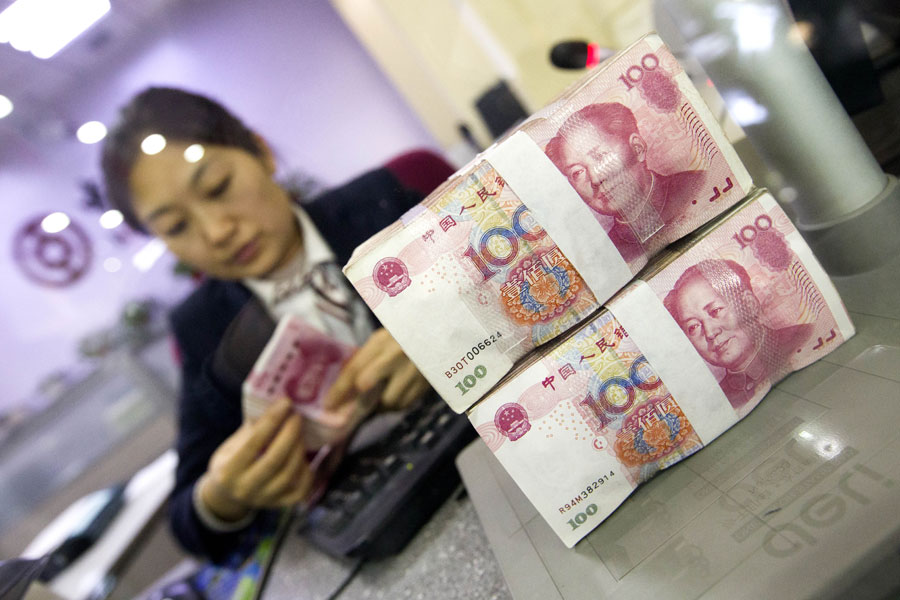Fiscal stance to balance growth, potential risks
China is likely to ramp up fiscal support while keeping monetary policy stable over the rest of the year, with the country's full-year economic growth expected to reach 8.5 percent or more, economists said on Tuesday.
China is likely to ramp up fiscal support while keeping monetary policy stable over the rest of the year, with the country's full-year economic growth expected to reach 8.5 percent or more, economists said on Tuesday.

A cashier at a bank in Taiyuan, Shanxi province counts renminbi notes. [Photo/China News Service]
Any fiscal easing may be moderate, as policymakers are expected to strike a balance between spurring economic growth and containing financial risks. Policymakers may also want to keep some policy room for any unexpected downside risks amid persistent uncertainties, the economists said.
Their comments came as the market is closely watching how China will set its macro policy agenda for the second half of 2021, especially after the recent cut in the required reserves of financial institutions, something that is usually seen as an easing signal.
Wang Tao, head of Asia economics and chief China economist with UBS Investment Bank, said China's fiscal policy is expected to ease compared with the first half, with local government bond issuance accelerating and fiscal expenditure picking up speed.
A more proactive fiscal policy will help shore up infrastructure investment and buffer the rising downside risks brought by lingering uncertainties surrounding COVID-19 that could inhibit the recovery in consumption, as well as a possible softening in export growth, Wang said.
"Potentially there is considerable room for easing fiscal policy in the second half," she said. "However, given that this year's recovery is robust and the government is balancing the objectives of growth and risk control, we do not expect the government to fully use the fiscal space."
According to Wang, even with moderate fiscal support in the coming months, the Chinese economy is still expected to grow by about 8.5 percent for the full year, far above the government's minimum target of 6 percent. "The government may want to keep some policy room for next year," she said.
Premier Li Keqiang's remarks at a symposium attended by experts and entrepreneurs earlier this month pointed to the government's focus on coordinating short-term and long-term economic stability in formulating macro policies.
At the symposium, Li called for efforts to keep economic performance within a reasonable range "over the second half of this year as well as next year" and to conduct "cross-cycle regulation".
Cheng Shi, chief economist at ICBC International, said Li's remarks revealed that the major problems facing China's economic recovery lie in structural problems and persistent risks, such as an unbalanced recovery in global supply and demand that has pushed up raw material prices and may affect labor market stability.
Macro policy adjustments will become more targeted accordingly, Cheng said. "On the monetary front, a substantial easing is unlikely in the second half of the year, but flexible and targeted support for smaller businesses will continue. Credit support for labor-intensive sectors may strengthen to safeguard employment."
Data from the National Bureau of Statistics showed that smaller, private businesses have lagged in recovery as elevated commodity prices have squeezed their profit margins.
The profits of Chinese industrial companies grew by 66.9 percent year-on-year from January to June, but those of private enterprises in the sector grew at a slower pace of 47.1 percent during the same period, the NBS said on Tuesday.
Gao Shanwen, chief economist at Essence Securities, said China should make its monetary policy more accommodative for the private sector by guiding the market interest rate lower while continuing to stabilize the leverage ratio of the government.
"Guiding the market interest rate lower will help encourage and stimulate more capital expenditure in the private sector, which will be an important driver of economic growth," Gao said.

